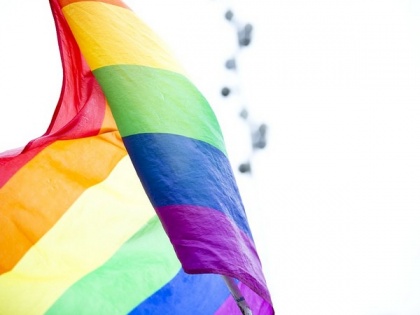US survey report reveals 73 pc LGBTQ youth face bullying for reasons beyond sexual identity
By ANI | Published: June 15, 2020 03:57 PM2020-06-15T15:57:23+5:302020-06-15T16:48:42+5:30
About 73 per cent of LGBTQ (lesbian, gay, bisexual, transgender and queer) adolescents have faced at least one experience of bias-based bullying (because of their body weight, race, ethnicity and religions), suggests a recent US survey report.

US survey report reveals 73 pc LGBTQ youth face bullying for reasons beyond sexual identity
About 73 per cent of LGBTQ (lesbian, gay, bisexual, transgender and queer) adolescents have faced at least one experience of bias-based bullying (because of their body weight, race, ethnicity and religions), suggests a recent US survey report.
The new study was published in the American Journal of Preventive Medicine by researchers at the Rudd Center for Food Policy and Obesity at the University of Connecticut. This number is more than double estimates from previous studies with predominantly heterosexual youth.
By the time they reach middle school, sexual and gender minority (SGM) adolescents are at heightened risk of suicide, depression, sleep troubles, and eating disorders. These health consequences often stem from the distress of being stigmatized for their sexual and gender identities. Based on this knowledge, researchers wanted to learn whether being mistreated for other reasons (such as their weight, race/ethnicity, religion, disability status) also contributes to their health.
"When considering approaches to reduce health risk, we need to better understand the wide range of bias-based bullying experienced by SGM adolescents," says Leah Lessard, a postdoctoral fellow at the Rudd Center and lead author of the study. "Given that multiple forms of bias-based bullying can worsen negative health behaviours, it is critical to understand how school-based interventions, such as Gay-Straight Alliances (GSAs), may be able to reduce targeted bullying."
The study reports findings from the LGBTQ National Teen Survey, a comprehensive survey conducted in partnership with the Human Rights Campaign to assess victimization, health behaviours, family relationships, and experiences of LGBTQ adolescents across the United States. Researchers asked participants ages 13-17 questions about school-based GSAs, their experiences of bias-based bullying, and health risk indicators, including stress, sleep problems, depression, and unhealthy weight behaviours.
Key findings of the study include:
* 73% of SGM adolescents surveyed reported experiences of bias-based bullying for reasons beyond their sexual or gender identities, such as being bullied because of their body weight (57%), race/ethnicity (30%) and religion (27%).
* Each type of bullying was positively related to health risk, including depression, sleep problems, stress, and unhealthy weight control behaviours.
* The presence of a Gay-Straight Alliance at school was associated with less bullying of students for their weight, gender, religion, disability, and sexuality.
Given these results, GSAs have positive implications for not only students facing LGBTQ-related bullying, but also for those who experience other types of bias-based bullying. By reducing rates of targeted victimization, these orgzations may help lower the risk of unhealthy behaviours in vulnerable adolescents.
"The harmful effects and wide range of bias-based bullying experienced by SGM youth calls attention to the importance of promoting broad-reaching inclusion and acceptance within schools, " said Lessard. "Due to the breadth of stigma-reduction across multiple social identities, our results underscore GSAs as a promising avenue to support healthy outcomes for SGM youth."
( With inputs from ANI )
Open in app